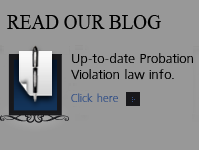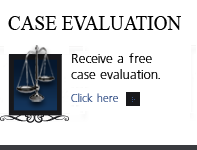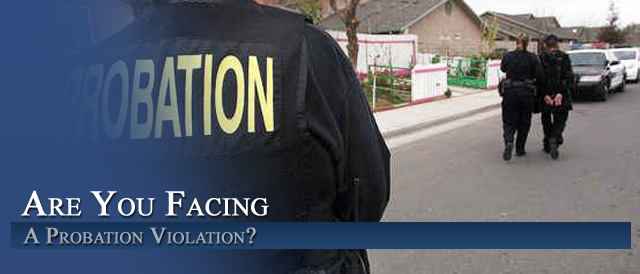
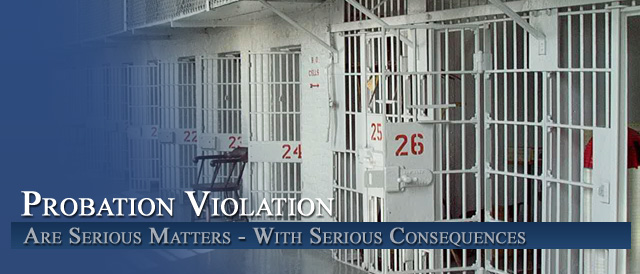

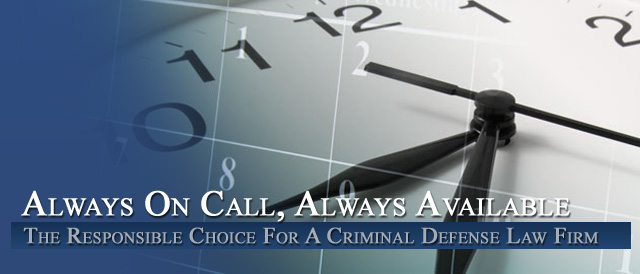
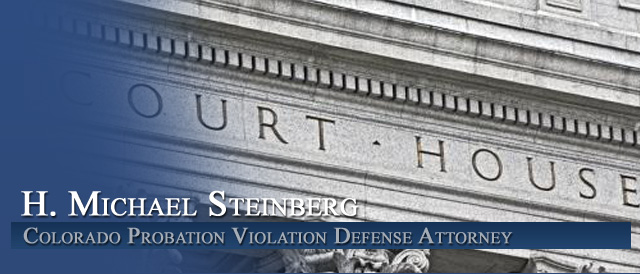
Are There Any Time Limits On Colorado Probation Violations?
By H. Michael Steinberg Colorado Probation Violation Criminal Defense Lawyer – Attorney
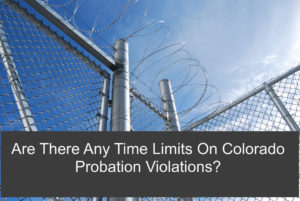 Are There Any Time Limits On Colorado Probation Violations? – It is a common question for Colorado individuals on probation to ask if they could just “wait out” a probation violation until their term of probation expires. The answer is no – they cannot. If the probation violation process (described below) is followed, the term of probation stops – it is “tolled” until the probation violation complaint is resolved.
Are There Any Time Limits On Colorado Probation Violations? – It is a common question for Colorado individuals on probation to ask if they could just “wait out” a probation violation until their term of probation expires. The answer is no – they cannot. If the probation violation process (described below) is followed, the term of probation stops – it is “tolled” until the probation violation complaint is resolved.
The Difference Between A Statute Of Limitations And The Jurisdictional Limits Placed On A Judge In A Colorado Probation Violation Situation
There is no statute of limitations in a probation violation case. Period. The statute of limitations only applies to cases where charges have not been filed within the time frame provided under the law.
On the other hand it is equally true that once a term of probation has expired, a Colorado court lacks jurisdiction to entertain a complaint for revocation of probation based on a violation. But if a violation occurs during the probation period (or for Deferred Judgement case – within 35 days of the end of the deferred), IF appropriate steps were taken to revoke or modify probation.
Put differently, Colorado courts lose jurisdiction over a “probationer” after the term of probation has expired That probationary term may be “tolled” (stayed – or frozen) by the initiation of revocation proceedings by any of methods specifically authorized by statute. IF a probation violation proceedings has not been properly initiated Colorado courts lose “jurisdiction” over a probationer after the term of probation has expired.
The Probationary Period “Tolled” When The Proper Procedures Are Used To Initiate A Probation Violation In Colorado
A complaint to revoke probation must ultimately be filed in order to revoke the probation. Any ONE of the four events described below is sufficient to initiate probation revocation proceedings, and thereby toll the probationary period until the proceedings are completed, terminated by the probation officer and or the District Attorney, or dismissed by the Judge.
Under Colorado law a probationer’s probation period is “tolled” upon certain criteria being met.
Under Colorado law Section 16-11-205, C.R.S., governs the initiation of probation revocation proceedings.
That statute contemplates ONLY FOUR possible ways by which probation revocation proceedings may be initiated:
(1) The issuance of a summons by a probation officer requiring the probationer to appear in court, § 16-11-205(2), C.R.S.;
(2) The arrest of a probationer by a probation officer, § 16-11-205(3), C.R.S.;
(3) The filing of a complaint for the revocation of the probation, § 16-11-205(5), C.R.S.; and
(4) The filing of a report by the probation officer, or a verified complaint by any person, together with a request for an arrest warrant, § 16-11-205(6), C.R.S
During The Colorado Probation Violation Procedure – Do I Have The Same Constitutional Trial Rights I Had Before I Was Convicted Or Placed On The Deferred Judgement?
An important limitation on exactly when a complaint to revoke probation must be filed.
A complaint to revoke must be filed within 7 days after the probation officer arrests the probationer without a warrant, or within a reasonable time after the probation officer issues a summons for the arrest of the probationer. Section 16-11-205(4).
Because probation is a privilege and not a right, a probationer’s conditional liberty interest is afforded limited procedural due process protections, which includes the right to written notice of the claimed violations of probation.
Only the following due process requirements at probation revocation hearings are required:
(1) You have the right to written notice of the specific alleged probation violations;
(2) You have the right to disclosure to the probationer of evidence against him;
(3) You have the right to an opportunity to be heard in person and to present witnesses and documentary evidence;
(4) You have the right to confront and cross-examine adverse witnesses; and
(5) You have the right to a written or oral statement on the record made by the fact finder as to the evidence relied on and the reasons for revoking probation.
Here Is the Law That Governs The Initiation of a Colorado Probation Violation Case:
§ 16-11-205 Arrest of Probationer – Revocation
(1) A probation officer may arrest any probationer when:
(a) He has a warrant commanding that the probationer be arrested; or
(b) He has probable cause to believe that a warrant for the probationer’s arrest has been issued in this state or another state for any criminal offense or for violation of the conditions of probation; or
(c) Any offense under the laws of this state has been or is being committed by the probationer in his presence; or
(d) He has probable cause to believe that a crime has been committed and the probationer has committed such crime; or
(e) He has probable cause to believe that the conditions of probation have been violated and probable cause to believe that the probationer is leaving or about to leave the state, or that the probationer will fail or refuse to appear before the court to answer charges of violation of the conditions of probation, or that the arrest of the probationer is necessary to prevent physical harm to the probationer or another person or the commission of a crime; or
(f) The probationer, who is on probation as a result of a conviction of any felony except a class 1 felony, has been tested for the illegal or unauthorized use of a controlled substance and the result of such test is positive.
(2) If a probation officer has reason to believe that the conditions of probation have been violated by any probationer, he may issue a summons requiring the probationer to appear before the court at a specified time and place to answer charges of violation of the conditions of probation. The summons, unless accompanied by a copy of a complaint, shall contain a brief statement of the violation and the date and place thereof. Failure of the probationer to appear before the court as required by the summons shall be deemed a violation of the conditions of probation.
(3) If, rather than issuing a summons, a probation officer makes an arrest, without warrant, of a probationer, the probationer shall be taken without unnecessary delay before the nearest available judge of a court of record. Any probationer so arrested shall have all of the rights afforded by the provisions of this code to persons incarcerated before trial of criminal charges and may be admitted to bail pending probation revocation hearing.
(4) Within seven days after the arrest of any probationer as provided in this section, or within a reasonable time after the issuance of a summons under this section, the probation officer shall complete his or her investigation and either:
(a) File a complaint in the court having jurisdiction of the violation of probation; or
(b) Order the release of the probationer, if imprisoned, and notify the probationer that he is relieved of obligation to appear before the court. In such event, the probation officer shall give written notification to the court of his action.
(5) A complaint alleging the violation of a condition of probation may be filed either by the probation officer pursuant to subsection (4) of this section or by the district attorney. Such complaint shall contain the name of the probationer, shall identify the violation charged and the condition of probation alleged to have been violated, including the date and approximate location thereof, and shall be signed by the probation officer or the district attorney. A copy thereof shall be given to the probationer a reasonable length of time before he appears before the court.
(6) A warrant for the arrest of any probationer for violation of the conditions of probation may be issued by any judge of a court of record upon the report of a probation officer or upon the verified complaint of any person, establishing to the satisfaction of the judge probable cause to believe that a condition of probation has been violated and that the arrest of the probationer is reasonably necessary. The warrant may be executed by any probation officer or by a peace officer authorized to execute warrants in the county in which the probationer is found.
(7) A person or entity that provides supervision pursuant to section 18-1.3-202(2), C.R.S., may issue a summons and file a complaint with the court for a defendant under his or her supervision in accordance with the provisions of this section.
Here Is the Law That Governs The Procedures That Must Be Followed At The Hearing Of A Colorado Probation Violation Case:
§ 16-11-206. (Probation) Revocation Hearing
(1) At the first appearance of the probationer in court or at the commencement of the hearing, whichever is first in time, the court shall advise the probationer as provided in section 16-7-207 insofar as such matters are applicable; except that there is no right to a trial by jury in proceedings for revocation of probation.
(2) At or prior to the commencement of the hearing, the court shall advise the probationer of the charges against him and the possible penalties therefor and shall require the probationer to plead guilty or not guilty.
(3) At the hearing, the prosecution has the burden of establishing by a preponderance of the evidence the violation of a condition of probation; except that the commission of a criminal offense must be established beyond a reasonable doubt unless the probationer has been convicted thereof in a criminal proceeding. When, in a revocation hearing, the alleged violation of a condition is the probationer’s failure to pay court-ordered compensation to appointed counsel, probation fees, court costs, restitution, or reparations, evidence of the failure to pay shall constitute prima facie evidence of a violation. The court may, when it appears that the alleged violation of conditions of probation consists of an offense with which the probationer is charged in a criminal proceeding then pending, continue the probation revocation hearing until the termination of the criminal proceeding. Any evidence having probative value shall be received regardless of its admissibility under the exclusionary rules of evidence if the defendant is accorded a fair opportunity to rebut hearsay evidence.
(4) If the probationer is in custody, the hearing shall be held within fourteen days after the filing of the complaint, unless delay or continuance is granted by the court at the instance or request of the probationer or for other good cause found by the court justifying further delay.
(5) If the court determines that a violation of a condition of probation has been committed, it shall, within seven days after the said hearing, either revoke or continue the probation. If probation is revoked, the court may then impose any sentence or grant any probation pursuant to the provisions of this part 2 which might originally have been imposed or granted.
Are There Any Time Limits On Colorado Probation Violations?
If you found any of the information I have provided on this web page article helpful please click my Plus+1 or the Share buttons for Twitter and Facebook below so that others may also find it.
The contents of this article are based upon my research, my personal experience and my personal analysis and opinions developed from my thirty six years (as of 2017) of criminal trial experience from both sides of the courtroom – as a former career prosecutor for Arapahoe and Douglas Counties (13 years) and as the owner of my own Criminal Defense Law Firm since 1999 (18 years).
The reader is also admonished that Colorado criminal law, like criminal law in every state and at the Federal level, changes constantly. The article appearing above was accurate at the time it was drafted but it cannot account for changes occurring after it was uploaded.
If, after reading this article, you have questions about your case and would like to consider retaining our law firm, we invite you to contact us at the Steinberg Colorado Criminal Defense Law Firm – 303-627-7777.
Never stop fighting – never stop believing in yourself and your right to due process of law. You will not be alone in court, H. Michael will be at your side every step of the way – advocating for justice and the best possible result in your case. H. Michael Steinberg is passionate about criminal defense. His extensive knowledge and experience of Colorado Criminal Law gives him the edge you need to properly handle your case
 ABOUT THE AUTHOR: H. Michael Steinberg – Email The Author at:
ABOUT THE AUTHOR: H. Michael Steinberg – Email The Author at:
A Denver Colorado Criminal Defense Lawyer – or call his office at 303-627-7777 during business hours – or call his cell if you cannot wait and need his immediate assistance – please call 720-220-2277.
“A good criminal defense lawyer is someone who devotes themselves to their client’s case from beginning to end, always realizing that this case is the most important thing in that client’s life.”
You should be careful to make a responsible choice in selecting a Colorado Criminal Defense Lawyer. We encourage you to “vet” our firm. Over the last 36 plus years – by focusing ONLY on Colorado criminal law – H. Michael has had the necessary time to commit to the task of constantly updating himself on nearly every area of criminal law, to include Colorado criminal law and procedure and trial and courtroom practice.
Putting more than 36 years of Colorado criminal defense experience to work for you.
H. Michael works hard to get his clients the best possible results in and out of the courtroom. He has written, and continues to write, extensively on Colorado criminal law and he hopes this article helps you in some small way – Are There Any Time Limits On Colorado Probation Violations?
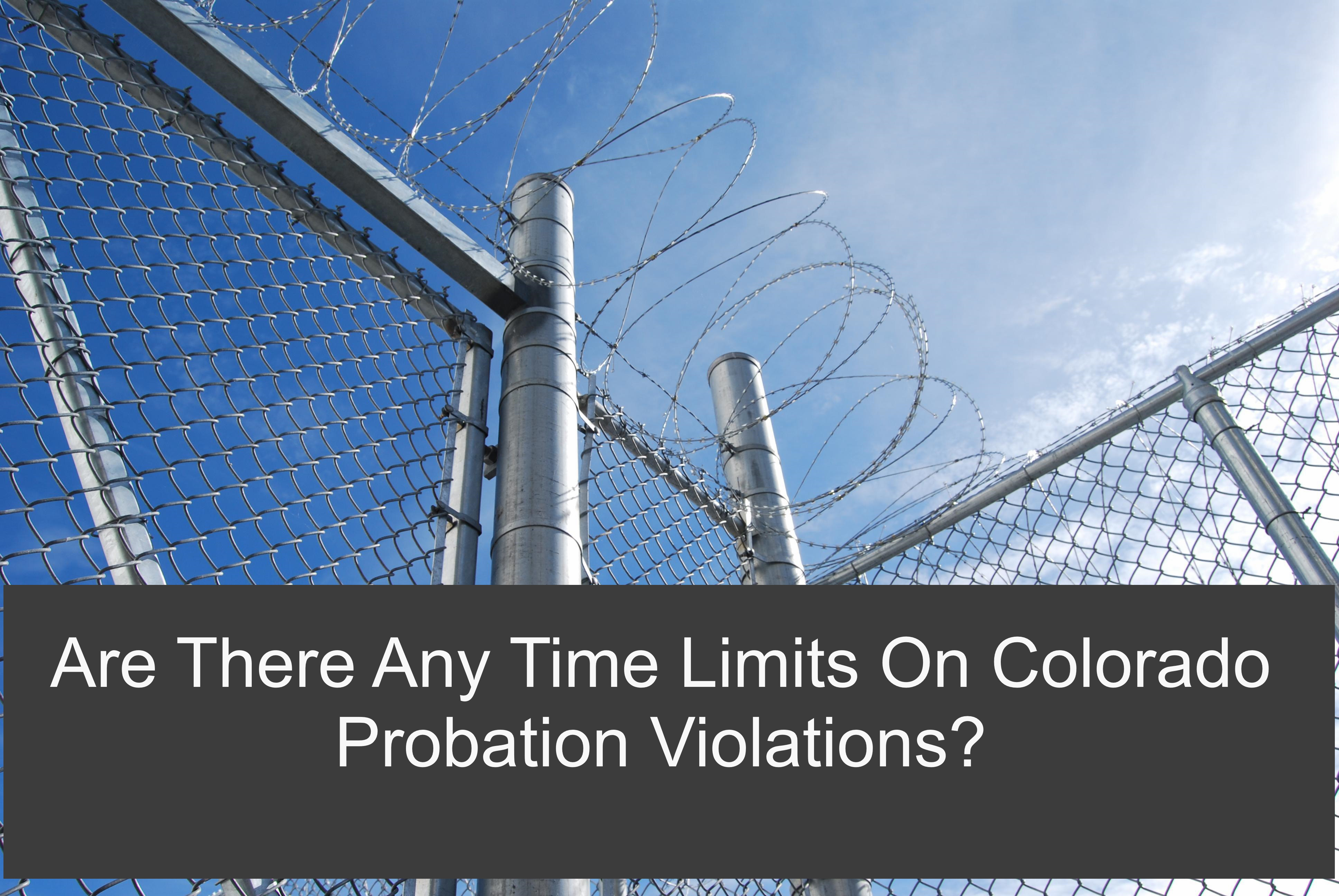
Other Articles of Interest:
- Can Illegally Obtained Evidence Be Used In Colorado Probation Violation Hearings Under 16-11-206?
- Colorado’s Probation Violation Hearing Law – Analysis
- Non-Payment Of Restitution As A Basis For Probation Violation Under Colorado Law

